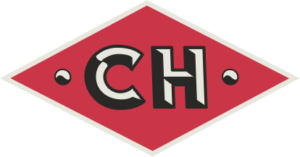10 Actions That Help Develop Critical Thinking Skills

The Problem: A Strategic Thinking Deficit
A common lamentation from leaders is that their key executives and team members lack critical thinking ability. They might use phrases like “problem-solving” or “decision-making,” but they’re most assuredly referring to critical thinking skills (or the lack of them). For some verifiable “hard data” in addition to my anecdotal observations, I encourage you to order and check out the results of the annual job outlook surveys conducted by the National Association of Colleges and Employers (NACE). In NACE’s reports, critical thinking consistently ranks as one of the skills employers covet most. NACE has made its 2019 report available online, so you can get a taste for the depth of research the organization offers.
The folks that employers are referring to are talented, accomplished, and typically highly proficient in some technical areas. Yet they lack the ability to think strategically while acting tactically. It’s not an issue of “ownership,” motivation, or accountability. Instead, it’s a matter of perspective. And perspective comes from an individual’s experience and knowledge base.
I’ve observed that many leaders focus on educating and training specialists to the detriment of encouraging generalists. It doesn’t matter whether we’re discussing the need for hands-on skilled tradespersons (like plumbers and electricians) or experienced knowledge workers like CPAs and attorneys. Our standard advice to young people is always some version of: “Go to school and get some skills.” Very rarely do we tell people: “Go study something and then see what happens.”
This may seem like oversimplifying the problem. Yet one of the best ways to become a generalist is to be educated generally. And, before I get pounced on by the pro-trade school, anti-higher education movement, I want to clarify that by “education” I mean self-education as well as formal education.
Education is a never-ending, lifelong process, and we must do more to instill in everyone a love of lifelong learning. Constantly upgrading skills and knowledge is critical for success. Moreover, doing so takes many different forms. To help you help yourself and others develop critical thinking skills, I have shared some transformational tips below.
Steps to Developing Critical Thinking Skills
1. Learn about critical thinking skills.
Learning some of the core concepts behind critical thinking is a great place to start. Unfortunately, when I googled the term “critical thinking skills,” I received 881 million results. That’s overwhelming! I recommend the article “10 Essential Critical Thinking Skills (And How to Improve Them)“ to simplify the start of your journey.
2. Evaluate how (and where) you spend your time.
We all have a limited amount of time. How do you spend yours? Every minute of every day need not be structured but aim to be deliberate about how you allocate most of your time. For example, set limits on social media exposure. It’s all too easy to get sucked into a doom scroll of memes and updates and lose minutes (if not hours) from your day.
3. Consume relevant information and put pablum in its place.
You’ve heard of garbage in, garbage out, right? What’s true of databases and computers is similarly true for humans. If all you feed your head is what’s in your social media feed or “headline” news, then you’re missing out on a wider world of information. To paraphrase the ancient knight in the movie Indiana Jones and the Last Crusade, “Choose wisely.”
4. Diversify your information sources.
We swim in a sea of information. Too often we allow information to come to us instead of deliberately seeking it out. Just as I encourage you to be selective about what you consume, I also recommend that you expand and diversify your sources. For example, if you enjoy reading murder mysteries, perhaps select a piece of historical fiction for your next read. If you liked watching The Crown on Netflix, find a short documentary to tune into. Book clubs and lists compiled by the American Film Institute are great places to discover interesting publications and media. Figure out what appeals to you and then explore the thousands of possible options.
5. Learn new things and take on new challenges.
If you have an opportunity to get out of your swim lane, take it. At work, this might mean tackling a different project, collaborating with new team members, or learning new skills. In your personal world, this might mean taking a trip to somewhere you’ve never been, trying out a new hobby, or deliberately self-educating yourself on something new. Realize that the lack of a clearly defined “return on investment” of your time doesn’t mean that the time won’t be well spent.
6. Identify your cognitive biases.
We all have cognitive biases. They simultaneously help us navigate life and hinder that same journey. Do you know what your biases are? A better understanding of how and why you make decisions can come in part from understanding your biases.
7. Use problem-solving frameworks.
Using external frameworks, logic trees, or critical thinking pathways is a way to boot-strap critical thinking skills. External frameworks can open new neural routes for solving problems. The downside is that many folks get stuck relying upon the process and never take the next steps to synthesize, internalize, and adapt what they’ve learned along the way. If you use external frameworks, please remember they are tools for getting started, but you must make them your own.
8. Fail.
You’ve probably heard some version of this advice before, but it doesn’t make it any less true: Fail and learn from it. I’ve failed at a great many things and the most memorable lessons in my life have come from the times I got the stuffing beat out of me. This is because the greatest opportunities for personal growth come from our failures – with two important caveats. First, make sure you understand WHY you failed so that you might apply your hard-won knowledge in future situations. Second, don’t let anyone – especially yourself – allow that failure to prevent you from taking responsible future risks. Stated another way, don’t allow the fear of failure to hold you back. Figuring out how to learn from failure will absolutely increase your critical thinking abilities.
9. Obtain outside perspective.
Obtaining perspective from other people whom you respect, trust, and admire is priceless. Colleagues, friends, and family can all offer unique viewpoints. Yet for professionals (I fully admit that this next point comes loaded with my own personal biases), the best perspective often comes from executive coaching and peer advisory groups. Sitting with a coach for extended sessions provides the opportunity for someone to know you on a deeper level. It provides a path for gaining valuable insight beyond your own frame of reference. Similarly, well-run peer advisory groups allow you to see your opportunities and issues through the lenses of others – that’s an invaluable gift.
10. Reflect and evaluate.
At the end of the day, we’re all responsible for our own personal and professional development. Goals and metrics are great. However, when we’re talking about the development of critical thinking skills, the power of honest self-reflection is a significant driver.
Ask yourself questions like:
- On a scale of 1-10, what do I believe is the quality of my critical thinking skills?
- What have I deliberately done to improve these skills?
- What opportunities have I taken that have (and what opportunities have I avoided that could have) sharpened my saw?
- What approaches do I use to solve problems and how well do they work?
- Am I deliberate about solving problems, or do I tend to “intuit” my way to a solution?
Other Resources to Help With Problem-Solving and Strategic Thinking
Critical thinking is so important to me that I regularly highlight it in my daily leadership emails. A few that have featured it include:
- Meta-Cognition and the Development of Critical Thinking Skills in Children
- Categorizing and Developing Critical Thinking Skills
- 5 Barriers to Critical Thinking
- Generalists vs Specialists
- The Value of Inquiry
- SQ3R Method for Critical Reading Skills
If you’d like to stay in the know about new critical thinking resources, sign up to receive my emails.
Ready to Cook Up an Action Plan?
No magic wand exists for making someone a pro thinker, so it may take a variety of techniques to develop critical thinking skills. Patience, deliberate choices, action, and foresight are all key ingredients in the recipe.
If you’d like to explore what your recipe for improving critical thinking skills might look like, please drop me a line. I’m always interested in helping others figure out how to bake their very own critical thinking cake and savor the delicious results!
